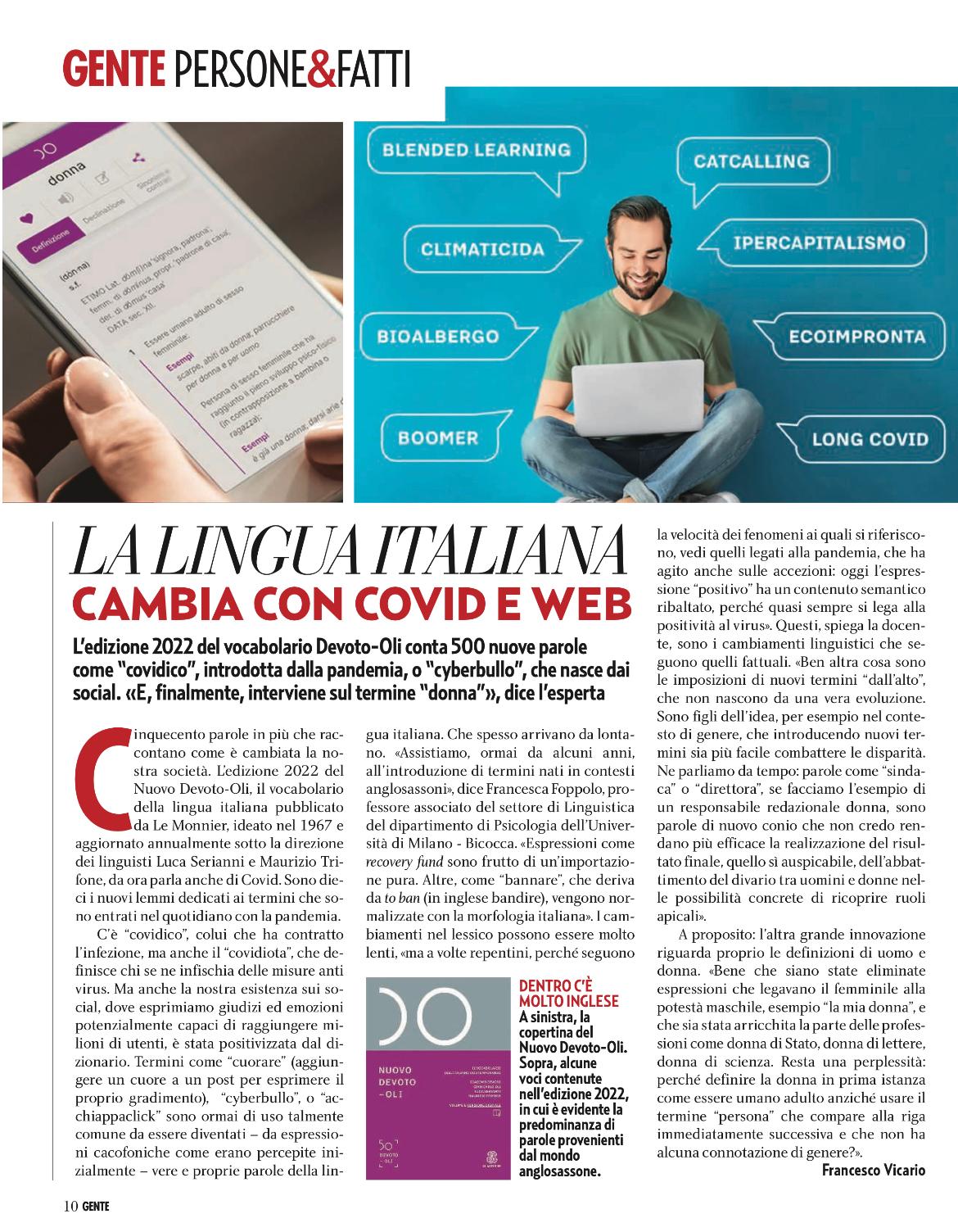Tag: #linguaitaliana

‘La lingua italiana cambia con Covid e web’ – Intervista su Gente alla Professoressa Francesca Foppolo
Intervistata dalla rivista Gente, la Professoressa Francesca Foppolo, membro del BILgroup, ha trattato il tema dei cambiamenti che stanno avvenendo nella lingua italiana. Tutti i dettagli nell’articolo di Gente del 1 ottobre 2021.
Read More